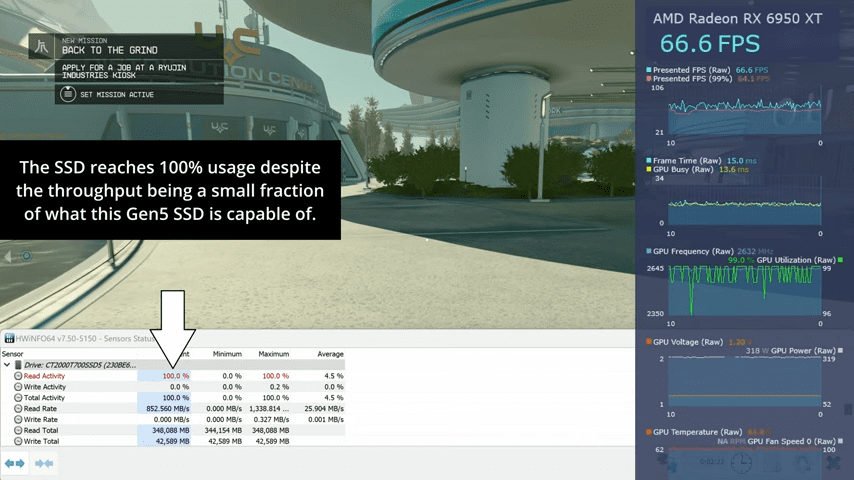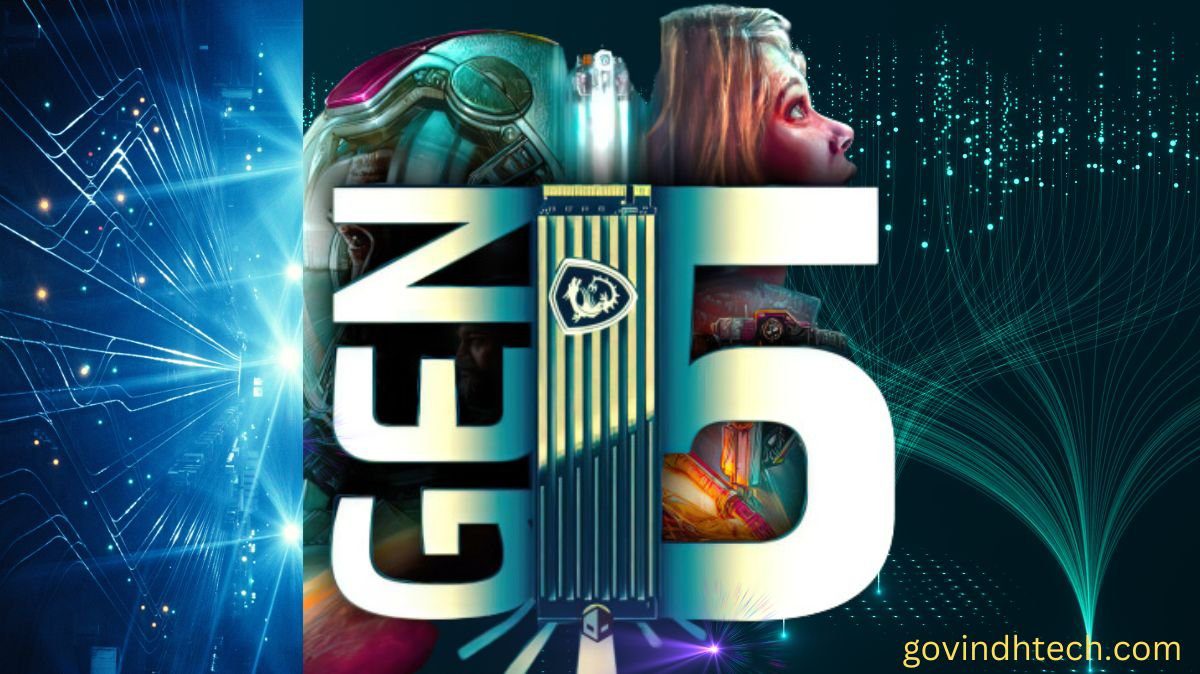Starfield’s subpar I/O performance leaves stuttering behind even the fastest PCIe Gen5 SSDs
Even high-end Gen5 solid-state drives displayed stuttering, which shows that the Starfield Engine may have a flaw in the manner that it optimises its I/O operations. This is supported by the fact that the stuttering was seen across several platforms.
The findings of Compusemble suggest that the computer version of Starfield may have a significant issue with the usage of its input/output (IO) devices. It’s possible that this issue is so serious that not even the most advanced Gen5 solid-state drives are safe from the stuttering that plagues the computer version of the game.
The low I/O performance of Starfield is the root cause of the stuttering, and even the quickest solid-state drives that adhere to the PCIe Gen5 standard are unable to remedy the problem
Since Bethesda has said that the installation of the role-playing game masterpiece should ideally be carried out from the very beginning on solid state storage, the question arises as to why this problem is still occuring.
Compusemble’s testing is without a doubt commendable in this regard since the individual who was engaged went to great lengths and disclosed that solid-state drives (SSDs) that are used to operate Starfield display “traversal stuttering.”
This is a term that describes the scenario in which the SSD is taking in a great deal more information than it was designed to take in, which has the potential to cause a “bottleneck.”
Compusemble collected the benchmarks that were acquired in “New Atlantis,” which is a highly well-known and artistically demanding place inside the game. Compusemble also gathered the benchmarks that were obtained in “New Atlantis.” This was done in order to present a description of the problem that was more in-depth and thorough.
The findings showed that the GPU was unable to work at an adequate level since the onboard SSD had reached its maximum capacity and was operating at a utilisation rate of 100%. Because of this, the graphics processing unit (GPU) dropped to an astonishingly low “0% usage” in certain situations.

The customer was using a Crucial T700 Gen5 SSD, which is claimed to have one of the quickest read/write rates of any solid-state drive (SSD) now available on the market; hence, the storage device cannot be held solely responsible for this issue on its own. The fact that the client was using a Crucial T700 Gen5 SSD is an extra significant issue to take into consideration.
Compusemble reveals that there is yet another instance of a lack of “SSD optimisation,” which is the reason why the block size range is becoming compromised; nevertheless, locating the main cause of the problem is not an easy process in this specific situation. Compusemble demonstrates that there is yet another instance of a lack of “SSD optimisation.”
In layman’s terms, an SSD needs a set block size in order to squeeze out the best performance. In this situation, the block size is too low, which is why the SSD may even beat the 555MB/s record. In other words, an SSD needs a specific block size in order to squeeze out the greatest performance. In other words, the size of the blocks is insufficient. To put it another way, the size of the block does not meet the requirements.
You may analyse this by making use of any benchmarking tool that provides information on the SSD consumption rate that is available to you. You have the ability to test it, despite the fact that we are unsure as to whether or not this is the major cause of stuttering in Starfield.
It is terrible, but even if this issue occurs on your own computer, there is not much you can do to remedy it as the most of the fault rests with the creator of the software. This means that even if this problem occurs on your computer, you will not be able to do much to fix it.
Since it is probable that the “SSD bottleneck” was the underlying cause of stuttering troubles experienced by a large number of customers without being noticed, we have high hopes that Bethesda will immediately discover it. As a consequence of this, we are keeping our fingers crossed that Bethesda will quickly identify the “SSD bottleneck.”


[…] Core processor. Intel UHD graphics are also included. Memory operating at DDR5-5600 MHz and dual solid-state drives compatible with PCIe Gen 4 guarantee that activities be carried out without hiccups and with […]
[…] Solidigm D7-P5810 is a fast SLC SSD for write-intensive […]
[…] product description, the Asus Hyper M.2 x16 Gen5 Card can accommodate a maximum of four NVMe M.2 SSDs in a single installation. Users are free to combine different types of storage devices. Users will […]
[…] Solid state drives, or SSDs, have become an essential part of improving client device user experience through increased speed, dependability, and power efficiency. Generally speaking, client SSDs fall into two categories: […]